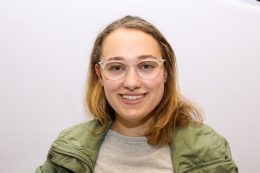
When I graduate in the coming year, I will owe first a debt to my parents, for their support and guidance. I will owe a debt of gratitude to my friends, for the warmth that they shared, and to past professors, for the knowledge that they conferred. Perhaps more easily forgotten, however, is the debt that I will owe to society. Along with 90 percent of American schoolchildren and 74 percent of American postsecondary students, my education has been funded largely at the taxpayer’s expense.
Before coming to Binghamton, I grew up in Brooklyn. During the 17 years that span from pre-K to present day (minus a year of study abroad), I have been lucky enough to have attended a few of New York City and New York state’s many phenomenal public schools. It was in world-class institutions such as Brooklyn’s Public School 372 where I learned how to read, write and think — an education issued for no reason other than place and circumstance. While duly aware that this basic availability does not necessitate great nor equal student experiences, I know that my primary education transcended arguments about class sizes and standardized tests.
It was 7 hours, 5 days a week, ten months a year, for a decade and a half. Speaking in monetary terms, by today’s figures, that’s roughly $227,500 invested in me from kindergarten until the time I graduated from high school in 2015. And though private universities with century-old brands may be the face of the archetypal U.S. college education, it is publicly funded university systems like SUNY that are most responsible for keeping the American dream accessible.
Casting aside the narrow eligibility net of Gov. Andrew Cuomo’s Excelsior Scholarship, the ethos of the program is simple: New York will invest in you so that you may in turn contribute to New York. The postdegree residency requirement makes this clear; for the same number of years you receive the scholarship, you must live and work in New York. While most public education in the United States comes without similar strings attached, this idea of paying it forward has long inspired American politics.
When President John F. Kennedy famously called in his inaugural address for an American people who might look beyond complacency and entitlement, he posed a challenge as important today as it was in 1961. “Ask not what your country can do for you — ask what you can do for your country.” As public school students, we should be especially sensitive to this message if we are to first consider what our country has already done for us. It is for this reason that I believe that my own story, and any future personal success, will reflect not the achievements of one person, but of the opportunities and generosity of a collective society.
The debt I began this piece with, owed to society by publicly educated graduating seniors, is beyond what can be repaid through an annual tax bill. First, we must also seek to contribute in the unique way we best can, at least maintaining the society that made our own advancement possible. Second, in the face of an administration that has proposed federal budget cuts to the Department of Education while seeking to move taxpayer dollars into private schools, we must refrain from hypocrisy. The upcoming midterms represent a deciding moment in our nation’s history. Public school kids should concretely reject any politicians dubious of the value of that education.
Jacalyn Goldzweig-Panitz is a senior majoring in political science.


